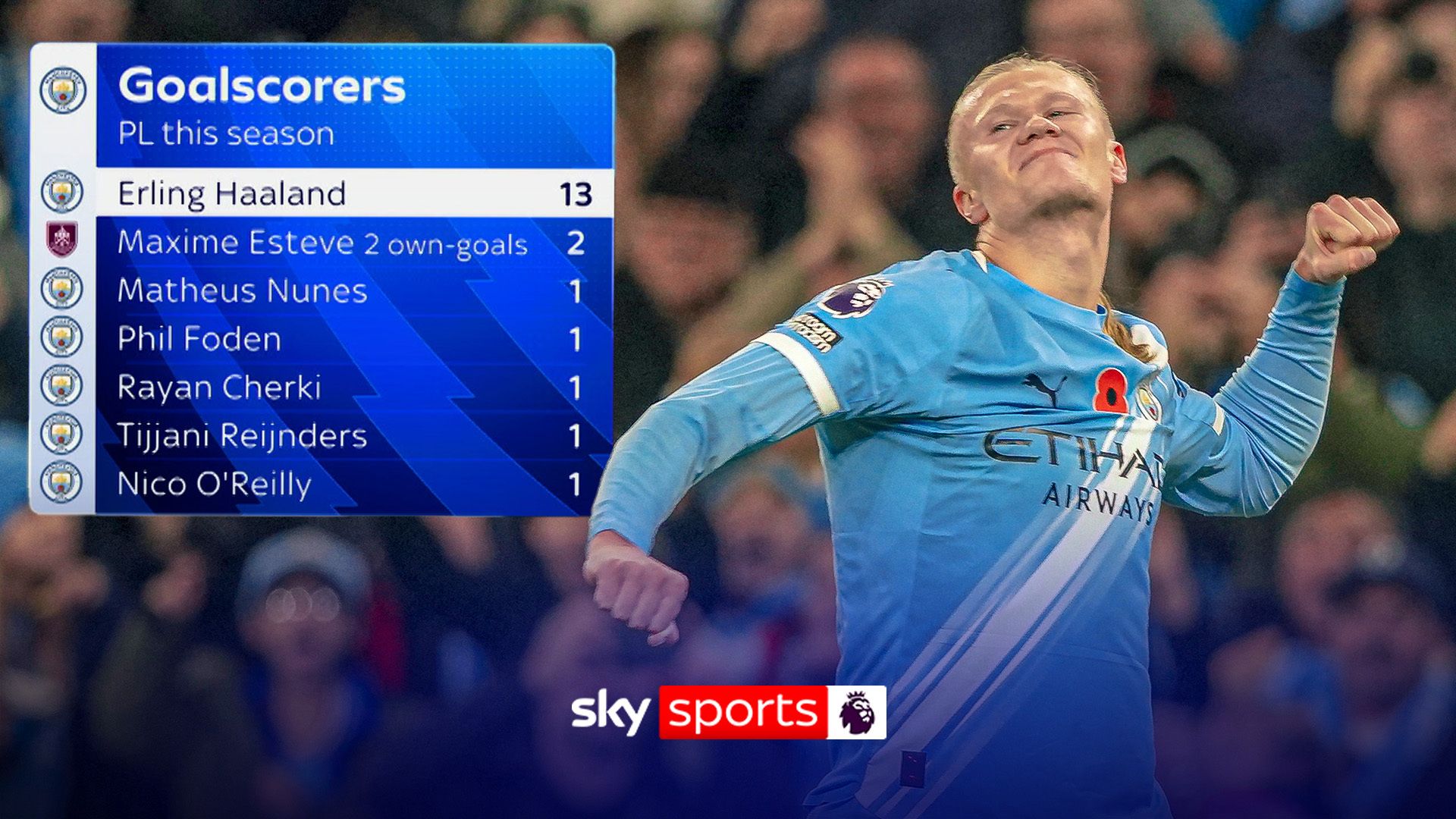Manchester City’s Haaland Dependency Mirrors Biblical Idolatry: A Team’s Fate Resting on One Man’s Shoulders Is a Recipe for Disaster
In the world of football, the rise of a single player can often overshadow the collective efforts of an entire team. This phenomenon is particularly evident in the case of Manchester City and their star striker, Erling Haaland. Since joining the club, Haaland has not only become a goal-scoring machine but has also emerged as the focal point of City’s attacking strategy. The question of whether Manchester City is becoming overly reliant on Haaland is a topic of heated debate among fans, analysts, and former players alike.
Haaland’s impact on Manchester City has been nothing short of phenomenal. His goal-scoring record speaks for itself; he has consistently found the back of the net in crucial matches, often turning the tide in City’s favor. This remarkable form has led to discussions about the extent to which City depends on him for success. While it is undeniable that Haaland brings a unique skill set to the pitch, the implications of such reliance can be concerning.
Historically, teams that place too much emphasis on a single player often find themselves in precarious situations. The narrative of a team’s success hinging on one individual can lead to a lack of depth in squad performance. In the case of Manchester City, the club has invested heavily in building a world-class team, yet the spotlight increasingly shines on Haaland. This dynamic raises questions about the balance between individual brilliance and team cohesion.
The parallels between Manchester City’s reliance on Haaland and the biblical concept of idolatry are striking. Just as ancient societies often placed their faith in a singular deity, modern football fans and analysts may be inadvertently elevating Haaland to a status that could be detrimental to the team’s overall performance. The danger lies in the potential for complacency among other players, who may feel less compelled to step up when they know that Haaland is there to carry the load.
Moreover, the pressure on Haaland to maintain his extraordinary form can lead to burnout or injury, which could have catastrophic consequences for Manchester City. The club’s fortunes could quickly change if their star striker were to face a prolonged absence due to physical strain or fatigue. This scenario is not merely hypothetical; history is replete with examples of teams that have faltered when their key players were sidelined.
In addition to the physical toll, there is a psychological aspect to consider. The weight of expectation placed on Haaland can create an environment where he feels he must deliver in every match. This pressure can lead to anxiety and performance issues, which could further exacerbate the team’s reliance on him. If Haaland were to experience a dip in form, it could expose vulnerabilities within the squad that have been masked by his exceptional performances.
Manchester City’s management must recognize the importance of fostering a more balanced approach to their attacking strategy. While Haaland’s contributions are invaluable, the team must ensure that other players are empowered to take on greater responsibilities. This can be achieved through tactical adjustments, such as varying the attacking formations or encouraging midfielders and wingers to take more risks in front of goal.
The club’s depth in talent should not be overlooked. Players like Phil Foden, Jack Grealish, and Kevin De Bruyne possess the ability to score and create opportunities. By encouraging a more collaborative approach to goal-scoring, Manchester City can mitigate the risks associated with over-reliance on Haaland. This strategy not only enhances the team’s overall performance but also fosters a sense of unity and shared purpose among the players.
Furthermore, the coaching staff must emphasize the importance of adaptability. In high-stakes matches, opponents will inevitably devise strategies to neutralize Haaland’s impact. If City becomes predictable in their reliance on him, they risk being outmaneuvered by teams that are well-prepared. A diverse attacking strategy that incorporates multiple players will make it more challenging for opponents to defend against City’s attacks.
The financial implications of Haaland’s presence at Manchester City cannot be ignored either. The club has made a significant investment in acquiring and retaining his services, which raises the stakes for both the player and the organization. The pressure to deliver results can lead to a win-at-all-costs mentality, which may not align with the club’s long-term vision. Balancing immediate success with sustainable growth is a delicate task that requires careful consideration.
As the season progresses, the narrative surrounding Manchester City’s reliance on Haaland will continue to evolve. Fans and analysts will closely monitor the team’s performance, scrutinizing whether they can maintain their winning ways without leaning too heavily on their star striker. The challenge for City lies in finding the right equilibrium between celebrating Haaland’s extraordinary talent and ensuring that the team as a whole remains competitive and resilient.
In conclusion, while Erling Haaland is undoubtedly a phenomenon in the world of football, Manchester City must be cautious of becoming overly reliant on his abilities. The potential pitfalls of such dependence are numerous, ranging from player burnout to tactical predictability. By fostering a more balanced approach and empowering other players to contribute, City can safeguard their success and build a more sustainable future. The journey ahead will test the club’s adaptability and resilience, as they navigate the complexities of modern football while striving for greatness.




